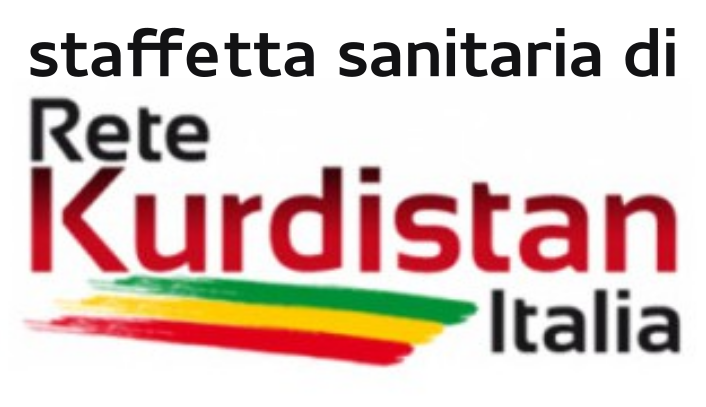of new technologies to tackle health emergencies: the production of orthopedic prostheses using a 3D printer
Thinking
of tackling the health system’s critical issues only with traditional methods
can turn out to be a factor that prevents overcoming the gaps, in particular
when these prove to be structural. On the contrary, in some cases, only a
“technological leap” can allow to face effectively some limitations
to which it’s not possible an answer, counting only on the will and human
commitment of the people involved. The use of a 3D printer is part of this type
of intervention and we think it can be achieved thanks to the collaboration of
3D experts and IT experts who can provide the necessary skills to start this
project and transfer them to Heyva Sor Staff in Rojava .
The local contest
It is known that most of the victims of modern wars are made up of civilians and especially of more vulnerable subjects such as women and children. There is evidence, emerged during the meetings with the co-chairmen of Heyva Sor a Kurd in Rome, of the great need for prosthesis, especially for minors, and whose production appears to be insufficient compared to what is deemed necessary. This emergency is not reduced with the end of the war activities mainly because of the mines and war residuals left on purpose by the Islamic militias in cities and villages previously occupied by them.
Currently the prosthesis production, with traditional methods, is entrusted to an expert and to 5-6 collaborators and this intervention aims to put this group in the conditions to produce a greater number of prostheses and its components helping them to get new skills and use new technologies .
Project phases
1. Share with Heyva Sor the technical
specifications of the Project (objectives, times and phases) on the base of a
more detailed document.
2. Define an experimentation protocol that will guide the implementation of the activities (tests of socket and prosthesis production)
3. Realize the experimentation
3.1 1st phase in Italy by:
– design of the experimental process in terms of tests and expected results: number of finished products with high quality and by type (e.g. sockets, lower limb prostheses)
– acquisition of equipment or identification of available equipment (PC, Printer 3D, Software, wire)
– costs evaluation and fund eventual fund raising
– Open Laboratory to define
• wich are the patient parameters
guiding the whole process;
• the selection procedures to choose the most appropriate standard components;
• the rules to correctly size the prosthesis;
• the rules and procedures to create the 3D model of the socket and prosthesis.
To this phase it’s necessary to have all the different skills involved as ICT experts, auto-cad experts, prosthesis experts.
The objective of this phase is to define a prototype of User Manual based on the results of the tests defined in the Protocol of experimentation. The User Manual will guide the local technicians step by step, providing for each activity the description of procedures and/or suggestions to perform best choices and, when possible, execute them automatically (e.g., choosing components and materials, or sizing parts).
A further objective of this phase is to train the trainers who will follow the technicians in Rojava in refining amd applying the Experimentation Protocol and follow the activities in Rojava.
During this phase, reports and video will be sent to Rojava to highlight the progress of the activities.
3.2. Realize the experimentation: 2st phase in Rojava
– prepare the Mission and follow it (e.g. logistic, authorization, monitoring)
– local acquisition of equipment or shipment of those desposable in Italy (PC, Printer 3D, Software, wire)
– meeting with local group who will follow the activities
– starting with a local open laboratory to apply and fine-tune the experimentation protocol
The goal of this phase is to refine, together with local staff, the User Manual who will help the local group to go on with the necessary grade of autonomy in carrying on the whole process.
4. Starting of self-production in Rojava, Help and distance counseling
After to autonomous starting of prosthesis production by Heyva Sor Staff, some of Italian technician involved in this project will provide assistance from Italy to give the necessary help and counseling, to ensure that the activities will continues, with the faculty of addressing the critical aspects that should emerge.
Working group
